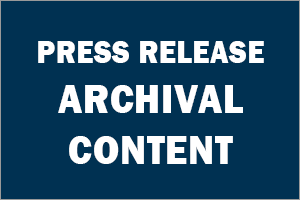NEWS SOURCE: Sons of Confederate Veterans
$22,500 of Taxpayer Money Allegedly Spent on ‘Vanity’ Plates
FRANKFORT, Ky. – Nov. 5 (SEND2PRESS NEWSWIRE) — “It’s not legal, not appropriate use of public funds, and a deep insult to non-profit organizations across the Commonwealth who have worked to legally get, or even have just thought about getting, specialty plates,” said Don Shelton, spokesman for the Kentucky Division, Sons of Confederate Veterans. “In the process of studying the procedures necessary to get a specialty plate for our non-profit, we stumbled across a plate sponsored by the Kentucky Historical Society that didn’t go through the proper processes,” Shelton continued.
Records show that the Kentucky Lincoln Bicentennial Commission voted $22,500 of money the legislature budgeted to it, for use by the Kentucky Historical Society to apply for a Lincoln Bicentennial specialty license plate. The law, however, requires a minimum of 900 individual applications to accompany the overall plate application, from citizens actually planning to purchase the plates for their vehicles, along with a $25 fee from each applicant. The Transportation Cabinet confirmed in the SCV’s investigation that instead of 900 or more individual applications, there were none, and that taxpayer money was being used to cover the $22,500 that should come from individual plate applicants. The plate is scheduled to be available in December.
“Basically, it appears that the taxpayers have shelled out $22,500 so a few people could have, in essence, ‘vanity’ plates,” said Shelton. “The subject of the plate isn’t important,” he continued, “It might even be a nice plate. What is important is that the law was circumvented, and taxpayer money was wasted to do it.”
In the wake of this alleged “scandal,” the Kentucky Division, Sons of Confederate Veterans calls for the co-chairs of the Kentucky Lincoln Bicentennial Commission, Tommy Turner and State Senator Dan Kelly, and Executive Director of the Kentucky Historical Society, Kent Whitworth, to resign or be replaced. “We believe these men knew the law, yet circumvented it,” said Shelton. The Kentucky SCV also calls for the funding and expenditures of the Lincoln Bicentennial Commission to be reviewed, in light of this irregularity, and for an investigation to see how this slipped through the Transportation Cabinet. “We expect other non-profits to make the same demands as they learn about this; it affects us all,” Shelton concluded.
The Sons of Confederate Veterans was founded in 1896 to honor the memory and heritage of Confederate soldiers, sailors and marines.
KRS 186.164 (11) – If the cabinet approves a request for a special license plate, the cabinet shall begin designing and printing the plate after the group collects a minimum of nine hundred (900) applications with each application being accompanied by a twenty-five dollar ($25) state fee. The applications and accompanying fee shall be submitted to the cabinet at one (1) time as a whole and shall not be submitted individually or intermittently.
News issued by: Sons of Confederate Veterans

Original Image: https://www.send2press.com/wire/images/08-0101-Send2Press_72dpi.jpg
# # #
Original Story ID: (3419) :: 2007-11-1105-003
Original Keywords: Kentucky Division, Sons of Confederate Veterans, request for a special license plate, Kentucky Lincoln Bicentennial Commission, Don Shelton, SCV Sons of Confederate Veterans
NEWS SOURCE: Sons of Confederate Veterans | Published: 2007-11-05 11:31:51
IMPORTANT NOTICE FOR ARCHIVAL CONTENT ABOVE: The above archival press release content was issued on behalf of the noted "news source" who provided the content (text and image[s]) and is solely responsible for its accuracy. Links may not work if very old; use such with caution. Send2Press does not represent the "news source" in any capacity. For questions about this content contact the company/person mentioned directly. To report fraud or illegal material, or DMCA complaints, please contact Send2Press via our main site (any such complaints must be made in writing, not by phone).
